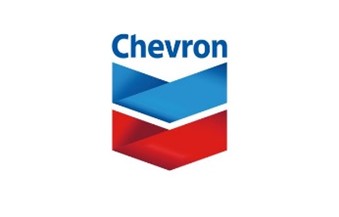39th Annual GCSSEPM Foundation Perkins-Rosen Research Conference
Deepwater Systems, Processes, and Exploration Potential: Revisited 1994–2023
The 39th annual Perkins-Rosen Research Conference celebrates nearly three decades of progress in understanding deepwater sedimentary systems. The conferences in the 1990s – including the 1994 GCSSEPM Perkins-Rosen Research Conference – emphasized submarine fans, reservoir presence, depositional architecture and outcrop analogs.
The focus of the 2023 conference will include what has been learned from the Gulf of Mexico to the Atlantic margins, to frontier basins as well as in laboratory studies and outcrops worldwide. We want to show the progress that has been made in the following areas:
- the range and variability in new deepwater play types globally,
- source-to-sink linkage of terrestrial, to deltaic, to deepwater systems,
- mixed deepwater sedimentary systems that incorporate a wide range of oceanic and seafloor processes (turbidite, contourite, hemipelagite/pelagite and mass-transport deposit inputs, etc.),
- physical modeling approaches as well as the advances in technology and process modeling in understanding the distribution of petroleum elements, including the use of artificial intelligence and digital workflows,
- deepwater mudrocks and more specifically their role as seals and source rock intervals as well as natural seafloor seeps,
- the influence of mobile substrates, including evaporites and mud, on deepwater sedimentary architecture above and below the mobile substrate.
Advancements in the understanding of deepwater sedimentary systems based on direct measurements of sedimentary basins including cores and outcrops, seismic and borehole imaging, physical and numerical modeling, and fieldwork or any new aspect from around the world are welcome.
Most importantly, examples of diverse deepwater exploration plays that have worked (or failed) as well as yet-to-be-tested plays are welcome. This conference will attempt to review the number of deepwater-related challenges that are yet to be solved, therefore providing a roadmap of where deepwater may go over the next three decades.
Early Bird (through September 25th)
| Member Registration | $495.00 |
| Non Member Registration | $595.00 |
| Student (Limited Seats Available*) | $375.00 |
| *contact Theresa Scott if student assistance is needed | |
| Additional Guest Icebreaker Ticket | $50.00 |
Registration will include conference online proceedings, ice breaker, continental breakfast, lunches and refreshments.
The GCSSEPM Foundation supports and complies with the SEPM Code of Conduct: https://www.sepm.org/Code-of-Conduct
Venue:
Equinor US
2107 CityWest Blvd, Suite 100
Houston, Texas 77042
Cassie Turley is the headquarters contact for this conference if you have questions.
Conveners
- Jon Rotzien – jon@basindynamics.com
- Cindy Yeilding – cindy.yeilding@swbell.net
- Richard Sears – rasears@stanford.edu
- F. Javier Hernández-Molina – javier.hernandez-molina@rhul.ac.uk
- Octavian Catuneanu – octavian@ualberta.ca
Technical Program Committee
- Luke Walker – Equinor
- Vitor Abreu – Abreu Consulting and Training
- Juan Fedele – ExxonMobil
- Tao Sun – Chevron
- Jason Flaum – USGS
- Lori Fremin – Haltermann Carless
- Daniel Minisini – Shell
- Samuel Plitzuweit – ExxonMobil
- Kevin Reece – Tulane University
- Clara Rodriguez – Petronas
- John Snedden – UT Institute of Geophysics
- Tian Yang – Chengdu Univ. of Technology
Important Dates and Deadlines:
(Preliminary, subject to change)
|
September 25, 2023 |
Early Bird Registration Opens! |
|
September 29, 2023 |
Final edited manuscript and illustrations due. |
November 10, 2023 |
Early Bird Registration Closed |
December 1, 2023 |
All conference registration closes. |
|
December 4, 2023
|
Conference in Houston Begins Evening Welcome Reception |
|
December 4-6, 2023
|
Conference in Houston Monday - Wednesday Equinor US |
Monday, 4 December
7.30–8.15 Registration (breakfast served)
8.15–8.20 Conference Welcome—John Suter
8.20–8.30 Welcome and Safety Moment—David Harold, Equinor US VP EPI, EPI US Asset Management
Session I: Keynote Special Session—Chairs: Luke Walker, Cindy Yeilding
8.30–9.15 Onlap trapping in deepwater settings: a global overview—Fernando Sanchez Ferrer
9.15–10.00 The search for disruptive-scale exploration discoveries in deepwater systems and how global play analogues might be represented in the remaining play potential of the GoM—Mark Shann
10.00–10.30 Break and Posters
Session IIA: Exploring for Deepwater Giants—Chairs: Samuel Plitzuweit, Daniel Minisini
10.30–11.00 Natural seepage in the Gulf of Mexico, an overview and the link with exploration—Minisini
11.00–11.30 Impact of provenance and depositional processes on mudrock properties and hydrocarbon exploration in ultra-deepwater reservoir systems—Samuel Plitzuweit, James Macquaker, David Abt
11.30–12.00 The final frontier of deepwater exploration: the continent–ocean transition zone—Mann
12.00–12.45 Lunch
12.45–1.30 Poster session with dessert and coffee
Session IIIA: Paradigm- and Dogma Busting in Deepwater System Research and Applications—Chairs: John Snedden, Cindy Yeilding
1.30–2.00 A roadmap for relevant research—Richard A. Sears, Cindy Yeilding
2.00–2.30 Assessing the suitability of “paleo deepwater” reservoirs for storage of anthropegenic CO2 in the northern Gulf of Mexico—J. Snedden, T. Whiteaker, A. Bump
2.30–3.00 Paradigm busting: observations from giant fields—Robert K. Merrill, Charles A. Sternbach, John Dolson
3.00–3.30 Break and Posters
Session IVA: Downslope, Along-Slope, and…to the Future and Beyond for Mixed Systems—Chairs: Juan Fedele, Adriano Viana
3.30–4.00 Reservoir architecture of a mixed turbidite–bottom current system, Sinu Basin, Offshore Colombia, SW Caribbean—Neal Auchter, Nadeer Khan, David Reed, Patricio Desjardins, Andrew Parent
4.00–4.30 Evolution of deepwater systems in the Perdido Fold Belt, US Gulf of Mexico—Thomas Heard, Aitor Ichaso, Hongjiao Yu, Supratik Sarkar, Meijuan Jiang, Neal Auchter, John Martin, Tat Banga
4.30–5.00 Initiation of contouritic moats and other longitudinal features on continental slopes, shelves, and contouritic terraces—Juan J. Fedele, Samuel J. Plitzuweit
5.00–5.15 Break and Posters
5.15–6.00 Discussion—Leaders: Adriano Viana, Clara Rodriguez, Cindy Yeilding, Rich Sears
Tuesday, 5 December
8.00–8.30 Registration (breakfast served)
Session V: Deepwater Gravity Flow Processes and Products—Chairs: Vitor Abreu, Tian Yang
8.30–9.00 Connecting deep-marine stratigraphy to seascape morphodynamics—David Mohrig
9.00–9.30 Giant sediment-wave field in gentle Mississippian slopes, an outcrop perspective of supercritical flows and crinoid gravel—C. Robertson Handford
9.30–10.00 Middle Ordovician mass-transport deposits from western Inner Mongolia, China: mechanisms and implications for basin evolution—Paul Myrow, Wenjie Li, Jitao Chen, Anne Hakim
10.00–10.30 Break and Posters
Session VI: Source to Sink: the never-ending puzzle—Chairs: Daniel Minisini
10.30–11.00 Vertical and lateral relationships of mass-transport deposits with channel and distributary lobe complexes, shallow subsurface, deepwater Gulf of Mexico—Ehman
11.00–11.30 Sediment density flows on the shelf; an important source-to-sink component—Ronald J. Steel, Ariana Osman
11.30–12.00 What is the long-term flux of sediment off the shelf? Insights from the Cenozoic of the northern Gulf of Mexico—Michael L. Sweet, Tim Whiteaker
12.00–12.45 Lunch
12.45–1.30 Poster session with dessert and coffee
Session VII: Modeling Advancements in Deepwater Sedimentary Systems—Chairs: Tao Sun, Juan Fedele, Kevin Reece
1.30–2.00 Exploration of the controls that set the shape of submarine fans and their stratigraphic architecture using numerical and physical experiments—Kyle M. Straub, Abdul Wahab, J. Kevin Reece, David C. Hoyal, Mrugesh Shringarpure, Robert Dorrell
2.00–2.30 Influence of minibasin topographic variations on turbidity current fluid dynamics and linked turbidite shape: a 3-D laboratory study—J. Kevin Reece, Robert Dorrell, Kyle M. Straub
2.30–3.00 Closing the gap in subsurface characterization and modeling through computational stratigraphy—Tao Sun et al.
3.00–3.30 Break and Posters
Session IIB: Exploring for Deepwater Giants—Chairs: Luke Walker, Lori Fremin
3.30–4.00 Exploration potential in the numerous deepwater plays offshore Mauritania—Elisabeth Gillbard
4.00–4.30 Middle and Lower Miocene middle slope systems of the outer west Louisiana shelf: an unexplored play between historical paradigms—Robert Pascoe, Peter Nuttall
4.30–4.45 Break and Posters
4.45–5.30 Discussion—Leaders: Vitor Abreu, Juan Fedele, Tao Sun, Daniel Minisini
Wednesday, 6 December
8.00–8.30 Registration (breakfast served)
Session IIIB: Paradigm- and Dogma Busting in Deepwater System Research and Applications—Chairs: Cindy Yeilding and John Snedden
8.30–9.00 Deepwater stratigraphic framework of the fine-grained Wolfcamp Fm., Permian Basin—Patricio Desjardins, Daniel Minisini
9.00–9.30 Advances in machine learning for sub-seismic interpretations: application for core and bore hole image logs—Neal Auchter, Oriol Falivene, John Solum, Patricio Desjardins, Gonzalo Astorga, Pedram Zarian
9.30-10.00 An emerging play in the eastern Gulf of Mexico shelf—Peter Mullin, Jerry Coggins, John Kulha
10.00–10.30 Interaction between along-slope bottom currents and turbidite flows in the northern offshore Argentina Basin—Ofelia Silio, Juan Pablo Lovecchio, María Eugenia Pascariello, Facundo Pagan, Sebastián Arismendi, Néstor Bolatti, Gonzalo Flores
10.30–11.00 Break and posters
Session IVB: Deepwater Gravity Flow Processes and Products
11.00–11.30 Mass-transport, injections and other forms of sediment mobility: from the seismic to the centimeter scale—Tiago Alves, Sebastian Cardona, Mérolyn Rodrigues
11.30–12.00 Morphology, genesis and evolution of the Mississippi Canyon: implications for ancient and modern submarine canyons—Juan Gutiérrez, Jacob D. Margoshes, Michael Sweet, Jacob Covault
12.00–12.30 Danube fan in the Black Sea: a levee-dominated deepsea fan—Howard R. Feldman, Bernard Dennielou, Gilles Lericolais
12.30–1.15 Lunch
1.15–2.00 Discussion: Summary of Learnings and Future Research Directions: Jon Rotzien, Cindy Yeilding, Richard Sears, F. Javier Hernández-Molina, Octavian Catuneanu, Tiago Alves
POSTER PRESENTATIONS (listed in alphabetical order)
A high-resolution bio- and chronostratigraphic zonation for the Wilcox Group, deep water Gulf of Mexico—P.A. Cornick, N.P. Campion, R. Weber, T.D. Demchuk
Watch your step! Defining the beginning and end of Carbon Isotope Excursion—James Eldrett, Steven C. Bergman, Daniel Minisini
Contribution to palaeoclimate reconstruction under the source-to-sink system of the continental Miocene Conglomerates of the region of Constantine, north east of Algeria—Djihane Gourari, Noureddine Rabahi
Mud-coated intraclasts: a criterion for recognizing sandy mass-transport deposits–deep-lacustrine massive sandstone of the Upper Triassic Yanchang Formation, Ordos Basin, central China—Xiangbo Li, Liu Huaqing, Zhang Yan, Zhanlong Yang
Challenges in the exploration of mixed-deepwater reservoirs in the Argentinean South Atlantic margin—Juan Pablo Lovecchio, Ofelia Silio, María Eugenia Pascariello, Facundo Pagan, Sebastián Arismendi, Néstor Bolatti, Gonzalo Flores
Quantification of turbidite fan heterogeneity linked to hyperpycnal flows and slope failure initiation mechanisms—Seyi Obafemi, Andreas Eckert, Jonathan Obrist-Farmer, Cedric Griffiths
Crustal structure in the Colombian Basin and its control on the distribution of source rock and play fairways in deep and ultra-deep waters of the Caribbean—Juan Pablo Ramos V, Paul Mann
Gravity flow deposits caused by different initiation processes in a deep-lake system—Tian Yang
This conference is made possible by our sponsors! If you are interested in conference sponsorship, please contact us.
Thank you to our sponsors!






